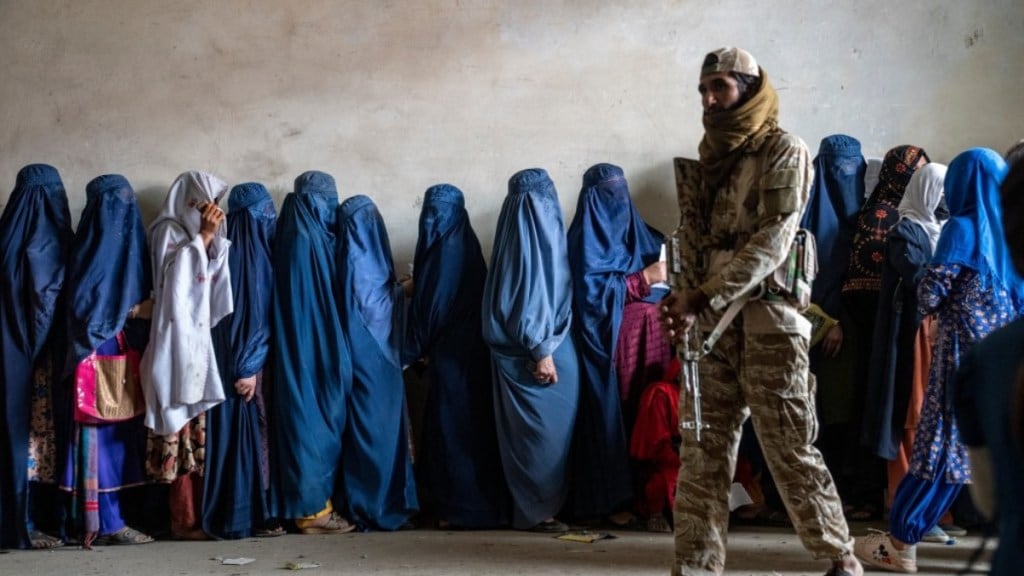In continuation of their oppressive regime, the Taliban has enacted a new rule that further silences Afghan women, effectively banning them from hearing each other’s voices. This latest decree, reported by the New York Post, underscores the Taliban’s relentless efforts to erase women from public life and societal discourse.
Khalid Hanafi, the Taliban’s Minister for the Promotion of Virtue and Prevention of Vice, announced the ban, claiming that a woman’s voice is considered “awrah,” which translates to that which must be covered and should not be heard in public. Hanafi’s directive extends to various aspects of women’s lives, stating that even when an adult woman is praying, she must do so quietly enough that other women cannot hear her.
He emphasised that if women are not permitted to hear each other while praying, they certainly cannot engage in singing or music. “How could they be allowed to sing if they aren’t even permitted to hear (each other’s) voices while praying?” Hanafi stated, revealing the draconian nature of this new rule. The implementation of this decree will reportedly be gradual, as the Taliban claims divine backing for their oppressive measures.
International Outcry
This latest edict has drawn sharp condemnation from human rights activists both within Afghanistan and around the globe. Zohal Azra, a representative from the Australian Hazara Advocacy Network, expressed disbelief at the situation’s deterioration. “It is hard to imagine the situation getting worse after the Taliban banned women’s voices and faces in public last month,” Azra stated. She highlighted that since regaining power, the Taliban has systematically erased women and girls from public life, implementing over 105 decrees aimed at their oppression.
Human rights organizations, including Amnesty International, have characterized the Taliban’s actions as a form of gender apartheid. Zaki Haidari, a strategic campaigner for refugee rights at Amnesty International Australia, called for urgent global intervention to support Afghan women. “The situation for women and girls in Afghanistan is growing darker by the day,” she said, emphasizing that the Taliban’s latest measures represent a calculated attempt to test international tolerance for their brutality.
A Call for Global Attention
The international community has begun to recognize the severity of the situation. United Nations Chief Antonio Guterres previously expressed profound concern over the plight of Afghan women, likening their oppression to some of the most egregious systems of subjugation in history. His comments reflect a growing awareness that the Taliban’s regime represents a direct threat to human rights and dignity.
Historically, Afghanistan had made significant strides toward gender equality long before the Taliban’s rise to power. Women gained the right to vote in 1919, a year before women in the United States, and the first schools for girls opened in 1921. However, the Taliban’s return to power has marked a severe regression in these hard-won rights.
The Taliban’s latest decree banning Afghan women from hearing each other’s voices is a stark reminder of the regime’s intent to erase women from public life entirely. As human rights activists and organizations rally to condemn this oppression, the world must respond with urgency and solidarity. The plight of Afghan women requires immediate attention and action, as they face a future increasingly shrouded in silence and oppression.
(With media inputs)
*

